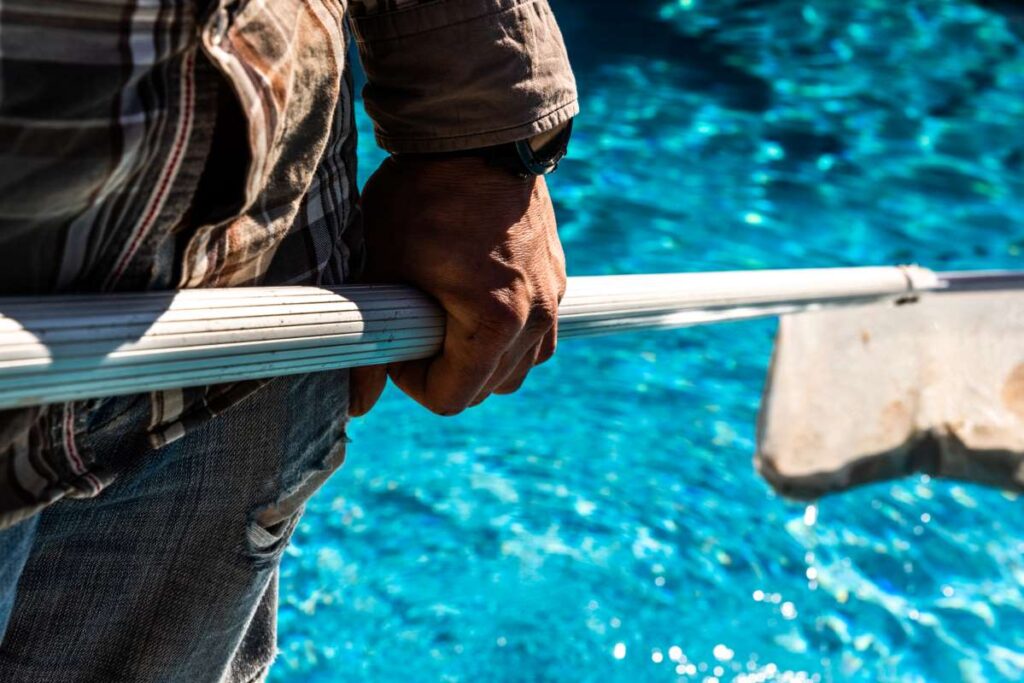Water Testing Best Practices: Tips for Accurate Readings
Learn the essential water testing best practices to ensure accurate readings for safe and clean swimming pool maintenance.
Water quality is a critical aspect of pool maintenance that directly impacts both health and enjoyment for swimmers. Accurate water testing ensures that chemical levels are balanced, thereby preventing issues like algae growth, skin irritation, and equipment damage. In this comprehensive guide, we will cover the best practices for water testing, including techniques, tools, and common pitfalls to avoid. Whether you’re a seasoned pool service professional or an aspiring entrepreneur looking to buy a pool route, understanding these practices will enhance your service quality and operational efficiency.
The Importance of Regular Water Testing
– Regular water testing is essential for maintaining pool health and safety. It helps to identify imbalances in chemical levels that can lead to various problems.- For instance, improper pH levels can cause skin irritations and eye discomfort, while unbalanced alkalinity can lead to equipment corrosion.- Consider this: According to the CDC, about 8,000 pool-related illnesses are reported each year in the U.S. alone. Regular testing can help to minimize these risks.By keeping the water balanced, pool service providers can ensure a safe swimming environment and protect their clients’ investments. If you’re new to pool maintenance, learning how to perform accurate water tests will be an invaluable skill as you navigate through your
pool routes for sale in Florida or any other region.
Choosing the Right Testing Equipment
– The first step in effective water testing is selecting the right equipment. Here are common types of testing kits: – Test Strips: Quick and easy to use, these strips provide immediate results for pH, chlorine, and alkalinity levels. – Liquid Test Kits: More accurate than strips, these kits involve mixing water samples with reagents to measure chemical levels. – Digital Testers: These devices offer the highest accuracy and ease of use, but they can be more expensive.When choosing testing equipment, consider factors such as accuracy, ease of use, and cost. For instance, while digital testers might be pricier, they significantly reduce the likelihood of human error during testing.
Best Practices for Accurate Water Testing
1. Test Frequency: – Testing should be conducted at least once a week during peak swimming season and bi-weekly during off-peak times. – For commercial pools, daily testing is often required to maintain compliance with health regulations.2. Proper Sampling Techniques: – Always collect water samples at elbow depth (about 18 inches below the surface) to avoid surface contaminants. – Use clean, dry containers to avoid cross-contamination, and rinse them with pool water before sampling.3. Timing Matters: – Test water in the evening after the sun has set, as sunlight can affect chemical readings. – Additionally, avoid testing immediately after adding chemicals to the pool, as chemicals need time to disperse evenly.4. Follow Testing Instructions: – Whether using test strips, liquid kits, or digital testers, always follow the manufacturer’s instructions carefully. – Pay close attention to expiration dates on test kits; expired chemicals can lead to inaccurate readings.5. Record Keeping: – Keep a log of testing results to track changes over time. This can help identify patterns and make adjustments more efficiently. – Use a digital platform or spreadsheet to simplify the tracking process, making it easy to share with clients if necessary.
Common Mistakes to Avoid
As with any process, there are common pitfalls in water testing that can lead to inaccurate readings:- Neglecting to Rinse Equipment: Always rinse testing equipment with pool water before collecting samples. This prevents contamination from previous tests.- Ignoring Temperature Effects: Water temperature can influence chemical reactions; ensure to account for this when interpreting results.- Using Inconsistent Sample Locations: Always sample from the same spot in the pool to maintain consistency in your testing results.By avoiding these mistakes, pool service professionals can ensure their testing is reliable and provide clients with exceptional service. As you build your client base through
pool routes for sale, maintaining accurate water testing practices will be a significant selling point.
Training and Knowledge in Water Testing
Effective water testing is not just about following steps; it also requires a solid understanding of pool chemistry. For individuals entering the pool service industry, comprehensive training is essential. Here are some resources available through
Superior Pool Routes Training:- Pool-School: An engaging video content platform designed to enhance your knowledge of pool systems, covering everything from water chemistry to equipment functions.- In-field Training: Hands-on training sessions are available in locations such as Fort Lauderdale, FL, and Dallas, TX.- Virtual Training: Perfect for those who may not be able to attend in-person sessions. This includes interactive video calls and additional packages for in-depth learning.Understanding these training components can greatly improve your effectiveness in the field and enhance the service you provide to clients, ensuring they maintain healthy and safe swimming environments.
Leveraging Technology for Better Results
The integration of technology into pool maintenance has made water testing more efficient and accurate. Here are a few ways technology enhances this process:- Smart Testing Devices: Consider investing in smart devices that monitor water quality in real time, alerting you via a mobile app when chemical levels fall out of range.- Data Analytics: Use software to analyze historical water quality data, helping you predict and prevent future issues.- Client Reporting Tools: Provide clients with easy-to-understand reports that summarize water testing results, making it simpler for them to understand the importance of various chemical levels.Embracing these technological tools not only streamlines your workflow but also improves communication with clients, thus enhancing overall service quality.
The Role of Customer Education
Educating clients about the importance of regular water testing can enhance their engagement and compliance. Here are some methods to ensure clients are informed:- Provide Informational Materials: Hand out brochures or flyers that explain the testing process, its importance, and what the chemical levels mean.- Host Client Workshops: Consider organizing workshops to teach clients about pool maintenance, showing them how to test water and why it matters.- Regular Updates: Send out newsletters with tips on pool care, water quality, and seasonal maintenance to keep clients informed.By fostering a culture of education, you not only enhance client trust but also empower them to take an active role in their pool maintenance.
Conclusion
Accurate water testing is a cornerstone of effective pool maintenance. By implementing best practices and avoiding common mistakes, pool service professionals can ensure the health and safety of their clients’ pools while simultaneously enhancing their own service offerings. Regular training and the use of technology can further improve accuracy and efficiency, making your pool routes more appealing to potential clients.As you consider expanding your business or starting fresh with a
pool route, remember that mastering water testing can set you apart from the competition. Stay informed, stay equipped, and most importantly, stay committed to providing the best service possible. For more information about available routes, training, and support, visit
Superior Pool Routes or get in touch through our
Contact Us page.



